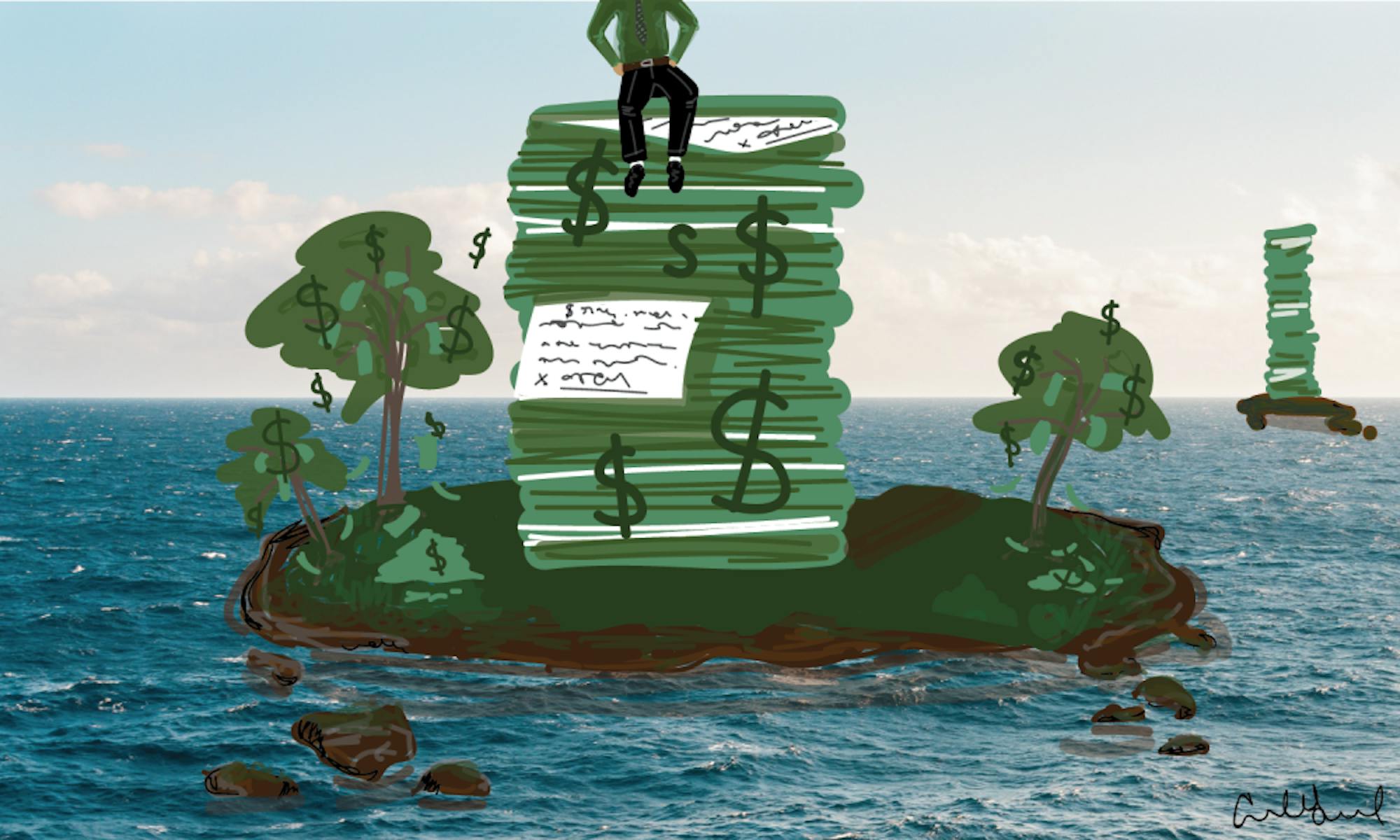Last week, the International Consortium of Investigative Journalists published its largest global investigation to date: the Pandora Papers. More than 600 journalists from 117 countries have spent the past several months reading through almost 12 million documents including images, files, emails and spreadsheets collected from 14 sources which reveal the hidden assets, tax evasion and money laundering of some of the world’s richest people. Among the myriad groups and high-profile figures implicated, the United Kingdom’s property market and the tax policies of several U.S. states proved to be global hotspots for wealthy individuals to hide their assets.
One of the notable pieces of policy that was exploited in the U.S. was the secrecy loophole for trusts in several U.S. states including Delaware, Florida, South Dakota, Nevada and New Hampshire. The Pandora Papers revealed over 200 U.S.-based trusts in 15 states, which held assets of more than $1 billion. This revealed information has led many to call upon the U.S. Treasury Department to close the secrecy loopholes by enacting the landmark Corporate Transparency Act which would require all trusts not already exempted in the law to report their real owners.
There have been three previous leaks in the past decade: the Offshore Leaks of 2013, the Panama Papers of 2016 and the Paradise Papers of 2017. Much like the recent Pandora Papers, the results of the prior investigations were met with widespread public outcry and criticism toward those implicated.
The sheer number of exposing publications released in the past decade show that none of these exposes resulted in the implementation of effective preventative measures. Although some individuals were sentenced to serve prison time for their crimes while some leaders were forced to step aside, the systems that allowed these situations to transpire were not reformed in a manner significant enough to prevent these crimes from continuing.
There are various reasons behind this, including public disillusionment with the possibility of placing effective restrictions on the wealthy as well as the fear of the power that money wields. After the release of the Panama Papers in 2016, the response from many Russian citizens was that they already knew that this kind of corruption was occurring, leading powerful people like Vladimir Putin to disregard the leaked information that implicated them. One of the lead journalists on the Panama Papers, Daphne Caruana Galizia, was killed by a car bomb in 2017. Her murder made headlines, striking fear into the minds of people who may otherwise feel compelled to speak out against the corruption of the wealthy classes.
The papers reveal a broad and far-reaching network of tax evasion and loop-hole profiteering, but they also highlight the two-faced, hypocritical approach that world leaders have taken toward suppressing this publicity. Battling against corruption and fighting for greater equality between classes has become a populist battle cry among many aspiring leaders. The U.K. conservatives, in their 2019 party manifesto, promised not to raise any taxes and vowed to bridge a 35 billion pound tax gap by being exceptionally tough on tax evasion. The Pandora Papers reveal that one of the conservative party’s wealthiest donors was involved in one of Europe’s largest corruption and evasion scandals.
Western regimes spearhead the fight against global corruption and this battle acts as one of their strongest arguments against autocrats around the globe. While Putin is featured prominently in the papers — through a prete-nom — so are major U.S. allies, such as the king of Jordan, Abdullah II. After mass demonstrations in 2018, the monarch vowed to battle corruption, saying he would not allow “Jordan’s reputation be at stake.” The United States criticizes autocrats around the world while propping up allied regimes that use the same playbook to siphon funds away from their citizens. This position is not morally tenable. The Kremlin is already using revelations about U.S. tax havens, such as South Dakota, to deflect criticism and blame back to the West. The Pandora Papers, along with the many other leaks, should serve as a call for a broader review of U.S. and Western foreign policy. Ignoring blatant violations of our values does not legitimize our actions and certainly doesn’t improve the United States’ ever-degrading image abroad.
These papers epitomize the problem of the wealth disparity in the United States and the systems which allow it to expand. The financial industry is so commonly exploited by wealthy individuals. Despite these repeated scandals, wealthy people continue to take advantage of system loopholes without notable, long-term penalties. Wealthy people continue to earn greater profits shielded by the forces of impunity, exacerbating the gap between the rich and the poor. We are far past the point where more concrete and far-reaching political, social and economic actions are necessary to change these systems. It is important that each and every individual is held accountable, both legally and financially, in order to demonstrate the importance of accountability and avoid further precedents of impunity. Leaders who are implicated in the Pandora Papers should be expected to address their involvement and, in many cases, step down from their positions. Legislators and leaders must also enact laws which would close the loopholes and tax havens that are currently being exploited. Without monumental changes like this, any other attempts at mitigating wealth disparities and ameliorating the effects of poverty will be rendered ineffective as the polarity between the rich and the poor continues to grow.






